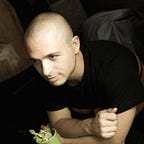The Scarab and the Phoenix
Intro: Signs of the Times
This is the first of a series of articles about super-powered feminine characters. Fictional works of recent years have been concentrating on this kind of characters as if there is something about them we haven’t quite dug up yet. These women wield magic, fire, and psychic abilities, punctually threatening destruction and revolution. They are sorceresses, androids, mutants and aliens, more than mere humans. Each of them has a significant relationship with her masculine counterpart — or a significant lack thereof.
Which feels surprising, because a feminine characterized by uncontrollable power is absent from prominent cultural products of the last few hundred years… now they pop up everywhere. It looks like recent invention, but I doubt that it is: true innovation is extremely rare. And yet, no such fictional character comes to mind for early twenty century literature. Nor for the nineteenth century for that matter. Nothing seems to quite fit from Shakespeare nor Dante.
Sure there are plenty of love stories, and no lack of women. European poets of the middle ages spend quite a few words on Angelic women, Wolf spends another few to dismantle that. To christian writers the reference is the virgin Mary, but sometimes there’s a warrior princess in the mix. At first glance, nothing clicks. There is something outside of mainstream literature though, in those folk tales that feel of pagan lineage. Tales of witches and dragons. Like Morgana: a powerful witch trying to destroy king Arthur’s reign.
That’s from the early middle ages. Before that… there’s Greek and Latin authors. And before that, myths which origin is lost thousands of years before Christ. Nothing clear in Greek, Norse, or Judaic mythology. Shouldn’t there be a story about a Goddess of fire, bringing forth a cataclysm of some sort?
A perfect archetype for this kind of characters is to be found in Egyptian mythology, and is about 5000 years old. The Goddess in question is so well fitting to modern fictions, that it’s entirely possible her narrative has been flowing like a subterranean river for millennia, to resurface in our present. She will be the main reference to interpret the stories of three modern Goddesses, and the relationship with their masculine counterparts, the Heroes. The narrative arch slightly varies every time: as if we were trying, story after story after story, to elaborate something we don’t quite grasp just yet, but has been of great importance to us since the dawn of times. So buckle up, because coming up next we have the first of five pieces: The Indestructibles.
